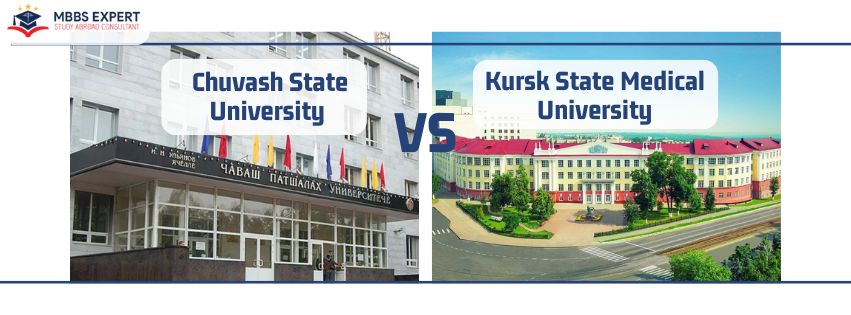Study MBBS at Ingush State University, Russia – Your Gateway to an Affordable Medical Education…
Quality of Medical Education in Georgia An Overview for Indian Students
![]()
Quality of Medical Education in Georgia An Overview for Indian Students
The quest for quality medical education drives many Indian students to explore international options. Among these, Georgia has emerged as a popular destination. Known for its high standards of medical education, affordable tuition fees, and vibrant cultural experience, Georgia offers a promising pathway for aspiring doctors. This blog provides an in-depth overview of the quality of medical education in Georgia, focusing on the aspects that make it an attractive option for Indian students.
- Accreditation and Recognition
Georgia’s medical universities are recognized by prominent global organizations, including the World Health Organization (WHO), the Educational Commission for Foreign Medical Graduates (ECFMG), and the Medical Council of India (MCI), now known as the National Medical Commission (NMC). These accreditations ensure that the education provided meets international standards, making Georgian medical degrees widely accepted.
- Curriculum and Teaching Methodology
The medical curriculum in Georgia is designed to integrate theoretical knowledge with practical skills. It follows the European Credit Transfer and Accumulation System (ECTS), ensuring a standardized and flexible approach to education. The curriculum is divided into pre-clinical and clinical phases, emphasizing early exposure to clinical practice.
Teaching Methodology:
- Interactive Lectures: Traditional lectures are complemented by interactive sessions, promoting active participation and critical thinking.
- Problem-Based Learning (PBL): This approach encourages students to learn through real-life scenarios, enhancing problem-solving skills.
- Clinical Rotations: Extensive clinical rotations in affiliated hospitals provide hands-on experience, essential for developing clinical competencies.
- Research Opportunities: Students are encouraged to engage in research projects, fostering a culture of innovation and scientific inquiry.
- Faculty and Infrastructure
Georgian medical universities boast a highly qualified faculty, many of whom have international teaching experience. The faculty members are not only educators but also mentors who guide students through their academic and professional journey.
Infrastructure:
- Modern Classrooms: Equipped with the latest technology, ensuring an effective learning environment.
- State-of-the-Art Laboratories: Advanced labs provide practical training in various medical disciplines.
- Simulated Training Centers: These centers offer realistic simulations of medical procedures, enhancing practical skills without the risk to patients.
- Libraries and Research Centers: Well-stocked libraries and dedicated research centers support academic and research activities.
- Language of Instruction
One of the significant advantages for Indian students is the availability of English-medium medical programs. This eliminates the language barrier, allowing students to focus on their studies without the added challenge of learning a new language.
- Clinical Training and Exposure
Clinical training is a cornerstone of medical education in Georgia. Students benefit from affiliations with top hospitals and healthcare institutions, gaining exposure to a diverse patient population and a variety of medical conditions. This practical experience is crucial for developing clinical skills and confidence.
- Cultural Integration and Support
Universities have dedicated support systems for international students, including orientation programs, language classes, and cultural integration activities. These initiatives help Indian students adapt to their new surroundings and feel at home.
- Affordability and Scholarships
Compared to many Western countries, the cost of medical education in Georgia is significantly lower, making it an affordable option for Indian students. Additionally, universities offer various scholarships based on academic performance, providing financial assistance to deserving students.
- Living Conditions and Student Life
Georgia offers a high standard of living at a relatively low cost. Accommodation options range from university dormitories to private apartments, catering to different preferences and budgets.
Student Life:
- Cultural Activities: Georgian universities host numerous cultural events, giving students the opportunity to engage with the local culture.
- Extracurricular Activities: A wide range of extracurricular activities, including sports, clubs, and student organizations, ensures a well-rounded experience.
- Safety: Georgia is considered a safe country with a low crime rate, providing a secure environment for students.
- Career Opportunities and Global Recognition
A medical degree from Georgia opens up a plethora of career opportunities. Graduates can pursue further studies or practice medicine in various countries, including India, after clearing the respective licensing exams such as the FMGE (Foreign Medical Graduate Examination) for India.
- Success Stories
Many Indian students who have graduated from Georgian medical universities have gone on to achieve significant success in their careers. Their testimonies highlight the quality of education and the comprehensive training they received, which prepared them well for the challenges of the medical profession.
Conclusion
Georgia offers a compelling combination of quality education, practical training, affordability, and a supportive environment, making it an excellent choice for Indian students aspiring to become doctors. The country’s medical education system not only equips students with the necessary knowledge and skills but also prepares them for a successful global career in medicine. As more Indian students discover the benefits of studying medicine in Georgia, the country continues to solidify its reputation as a preferred destination for quality medical education.





